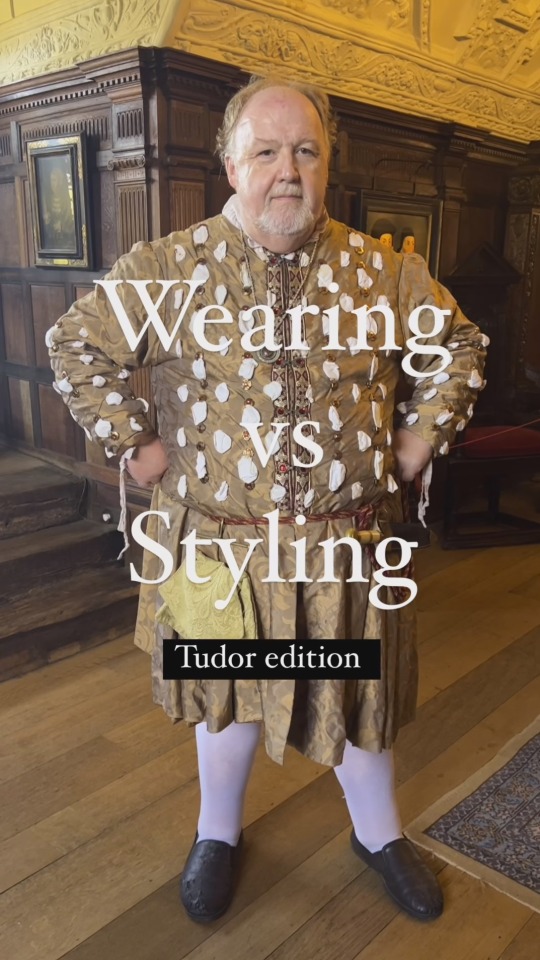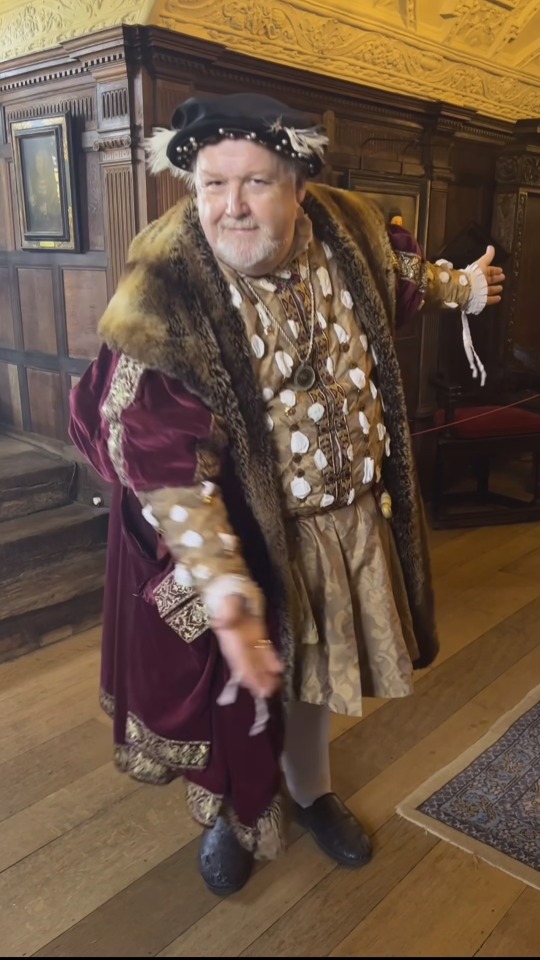In Weimar Germany, In 1930, Before Hitler, You Could Get Gender Treatment As A Trans Woman. The Laws
In Weimar Germany, in 1930, before Hitler, you could get gender treatment as a trans woman. The laws against homosexuality were largely unenforced, and the earliest gender-affirming surgeries were being developed.
A few years later, those same people were all living inside Hitler's Germany. It was all gone.
In the US in 2024 you could get an M, F, or X gender marker on your passport. No questions asked, just circle the box you want.
It's gone now.
Each verse of history has the same refrain. Kill your generation's fascists and rebuild.
More Posts from Fitzcrozier and Others

'Tempio della Concordia,' 1955,
Valley of the Temples, Agrigento, Sicily, Italy,
Photo by Konrad Helbig
Why did I just notice that???
Do you see how Alicent is so dissatisfied in the scenes during the Green Council meeting in episode 9? How utterly surprised and somewhat disappointed?




It's not because she falls from cloud nine to discover the possibility of Aegon becoming king when she learns about the lords' "long-laid plans" from Tyland Lannister. She knew that it would make sense for Aegon to inherit the throne for both the realm and the survival of her family, and basically gave us hints she realized this as early as the hunt scene in episode 3.


More specifically, she understands that she might have to put Aegon on the throne during the scene when a heavily drunk Viserys laments his fears of making a mistake in naming Rhaenyra his heir since he now has a son, and reveals to Alicent his prophetic vision of seeing his son with the conqueror's crown. Even if at that moment, Alicent reassures Viserys he made the right choice, you can see that the doubt lingers in her mind, and in seeing Rhaenyra return from the hunt covered in blood in absolute and ruthless callousness, Alicent recognizes the danger.


It is a wake-up call: in the end, she might have to choose her son over Rhaenyra.
And of course, we know that as Aegon was growing up, Alicent spent hours musing these doubts and even confronts him with them in episode 6: "You are the challenge, simply by living and breathing. You are the king's firstborn son and what they know, what everyone in the realm knows in their blood and in their bones, is that one day you will be our king."


So what explains her dismay during the Green Council meeting??
As I see it, the cause of Alicent's distress during the Green Council among other things is not that the lords planned a whole operation to crown Aegon as king, but that they did so behind her back, as if she is not fit to be included in these discussions, let alone be consulted for her own son's future and survival.


She rightly says: "Am I to understand that members of the small council have been planning secretly, to install my son without me?" and right after that comes the condescending reply: "My queen, there was no need to sully you with darkling schemes."
No sh!t.
Remember how betrayed and distraught Alicent felt went Aemond lost an eye and everyone dismissed her concerns as that of an overreacting and overbearing mother? The Green Council scene gives flashbacks to this.


Once again, Alicent's wishes, her wills, her thoughts, and her whole person as a mother, queen, advisor, and woman, are sidelined and minimized by members of her own council.
So this is why I think it makes sense that episode 9 is called "The Green Council" which contrasts the name given to a different council meeting in episode 10, namely, "The Black Queen." Because apparently, Rhaenyra owns her council meeting, even if she has to shut down Daemon to do so. But Alicent is not yet perceived as her own council's queen.
I hope we can somehow see Alicent truly become her own Green Queen in season 2.











Web-weaving: Kate “Woody” Woodward
bell hooks - All About Love | Up All Night, Cody Ellingham | Stolen Car - Bruce Springsteen | Untitled, Declan Haun | Mean Streets (1973) | Lost Highway (1997) | Sylvia Plath - The Letters of Sylvia Plath Vol. 1 (1940-1956) | Katrien de Blauwer | Mourning doves nesting in a cactus

Watercolour portrait of Ada King, Countess of Lovelace also known as Ada Lovelace, ca. 1840, possibly by Alfred Edward Chalon.
Ada Lovelace, is celebrated as the first computer programmer. In the early 19th century, she wrote detailed notes on Charles Babbage’s Analytical Engine, a pioneering mechanical computer.
Among these notes was an algorithm designed to compute Bernoulli numbers, which is recognized as the first published computer program. At a time when computing was an uncharted territory, Lovelace envisioned the potential of machines to perform complex tasks beyond basic arithmetic.
Her foresight and contributions laid the groundwork for modern computer science.
She was also the daughter of the poet Lord Byron.




Catania and Mount Etna at dusk, as seen from the dome of the Abbey of Saint Agatha. / Feb 2024

Hall, Creech Grange, unknown artist (signed with monogram 'D.R' lower right), English school, c. 19th century, watercolour.
when ethel cain said “i tried to be good am i no good am i no good am i no good” which started with her self-loathing after being abused by her father and neil perry said “i was good. i was really good” and then he killed himself because he knew that he would never be good enough for his father

Christoffer Wilhelm Eckersberg (Danish, 1783-1853)
Udsigt gennem tre buer i Colosseums tredje stokværk
-
 befuddled-bat liked this · 2 weeks ago
befuddled-bat liked this · 2 weeks ago -
 legend--wolf reblogged this · 2 weeks ago
legend--wolf reblogged this · 2 weeks ago -
 tiny-planty-grower liked this · 2 weeks ago
tiny-planty-grower liked this · 2 weeks ago -
 snailfloss reblogged this · 2 weeks ago
snailfloss reblogged this · 2 weeks ago -
 soopfork liked this · 3 weeks ago
soopfork liked this · 3 weeks ago -
 jastervhett liked this · 3 weeks ago
jastervhett liked this · 3 weeks ago -
 shywyvern liked this · 3 weeks ago
shywyvern liked this · 3 weeks ago -
 randomproxy liked this · 3 weeks ago
randomproxy liked this · 3 weeks ago -
 isowizard-handler-of-suggestions reblogged this · 3 weeks ago
isowizard-handler-of-suggestions reblogged this · 3 weeks ago -
 nadireedperez reblogged this · 3 weeks ago
nadireedperez reblogged this · 3 weeks ago -
 nadireedperez liked this · 3 weeks ago
nadireedperez liked this · 3 weeks ago -
 hunted-seraphim liked this · 3 weeks ago
hunted-seraphim liked this · 3 weeks ago -
 mer-birdman liked this · 3 weeks ago
mer-birdman liked this · 3 weeks ago -
 i-guess-that-happened liked this · 3 weeks ago
i-guess-that-happened liked this · 3 weeks ago -
 agendermetalbender reblogged this · 3 weeks ago
agendermetalbender reblogged this · 3 weeks ago -
 splatteredinmymind liked this · 3 weeks ago
splatteredinmymind liked this · 3 weeks ago -
 crpselynn reblogged this · 3 weeks ago
crpselynn reblogged this · 3 weeks ago -
 edenunderfallout reblogged this · 3 weeks ago
edenunderfallout reblogged this · 3 weeks ago -
 edenunderfallout liked this · 3 weeks ago
edenunderfallout liked this · 3 weeks ago -
 ellochaps liked this · 3 weeks ago
ellochaps liked this · 3 weeks ago -
 dreadsome liked this · 3 weeks ago
dreadsome liked this · 3 weeks ago -
 secretphantomparadise reblogged this · 3 weeks ago
secretphantomparadise reblogged this · 3 weeks ago -
 secretphantomparadise liked this · 3 weeks ago
secretphantomparadise liked this · 3 weeks ago -
 bloodispouring liked this · 3 weeks ago
bloodispouring liked this · 3 weeks ago -
 wannafuckingtearyouapart liked this · 3 weeks ago
wannafuckingtearyouapart liked this · 3 weeks ago -
 okawawebster liked this · 3 weeks ago
okawawebster liked this · 3 weeks ago -
 asmadasthehatters reblogged this · 3 weeks ago
asmadasthehatters reblogged this · 3 weeks ago -
 a121493 liked this · 3 weeks ago
a121493 liked this · 3 weeks ago -
 pizzacrustdisposal reblogged this · 3 weeks ago
pizzacrustdisposal reblogged this · 3 weeks ago -
 corvidsforhire reblogged this · 3 weeks ago
corvidsforhire reblogged this · 3 weeks ago -
 clownshrooms reblogged this · 3 weeks ago
clownshrooms reblogged this · 3 weeks ago -
 clownshrooms liked this · 3 weeks ago
clownshrooms liked this · 3 weeks ago -
 pepgione-punk reblogged this · 3 weeks ago
pepgione-punk reblogged this · 3 weeks ago -
 cannibalvomitparty liked this · 3 weeks ago
cannibalvomitparty liked this · 3 weeks ago -
 panic002 liked this · 3 weeks ago
panic002 liked this · 3 weeks ago -
 bethelgirl liked this · 3 weeks ago
bethelgirl liked this · 3 weeks ago -
 queenmimi2004 liked this · 3 weeks ago
queenmimi2004 liked this · 3 weeks ago -
 mangionebabymama liked this · 3 weeks ago
mangionebabymama liked this · 3 weeks ago -
 redactedtrigger reblogged this · 3 weeks ago
redactedtrigger reblogged this · 3 weeks ago -
 cuartoretorno liked this · 3 weeks ago
cuartoretorno liked this · 3 weeks ago -
 snipersmiggles reblogged this · 3 weeks ago
snipersmiggles reblogged this · 3 weeks ago -
 snipersmiggles liked this · 3 weeks ago
snipersmiggles liked this · 3 weeks ago -
 haterlovermotherfuckz liked this · 3 weeks ago
haterlovermotherfuckz liked this · 3 weeks ago -
 zerodayslefttolivee liked this · 3 weeks ago
zerodayslefttolivee liked this · 3 weeks ago -
 leiahhmew liked this · 3 weeks ago
leiahhmew liked this · 3 weeks ago -
 slopjunkie liked this · 3 weeks ago
slopjunkie liked this · 3 weeks ago



